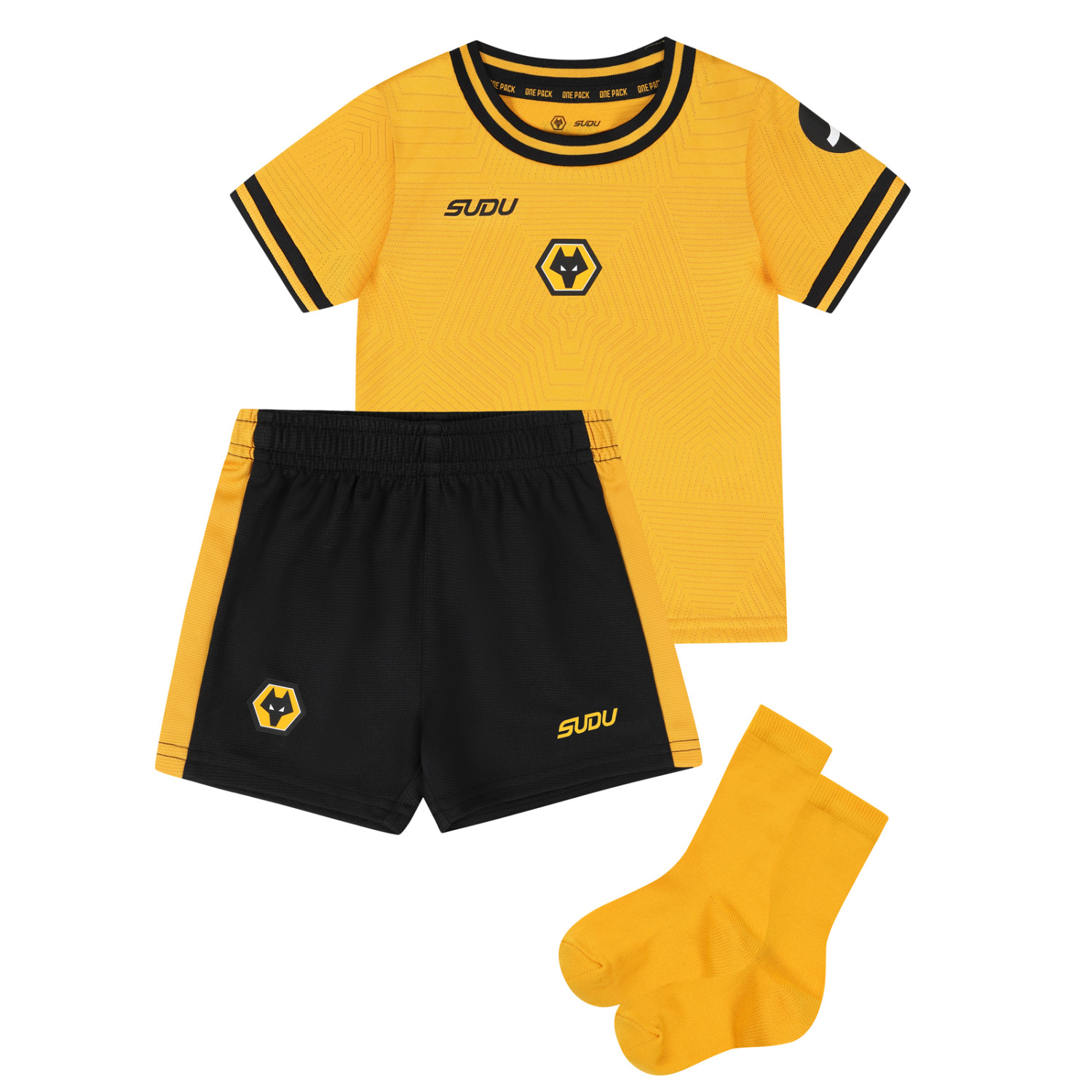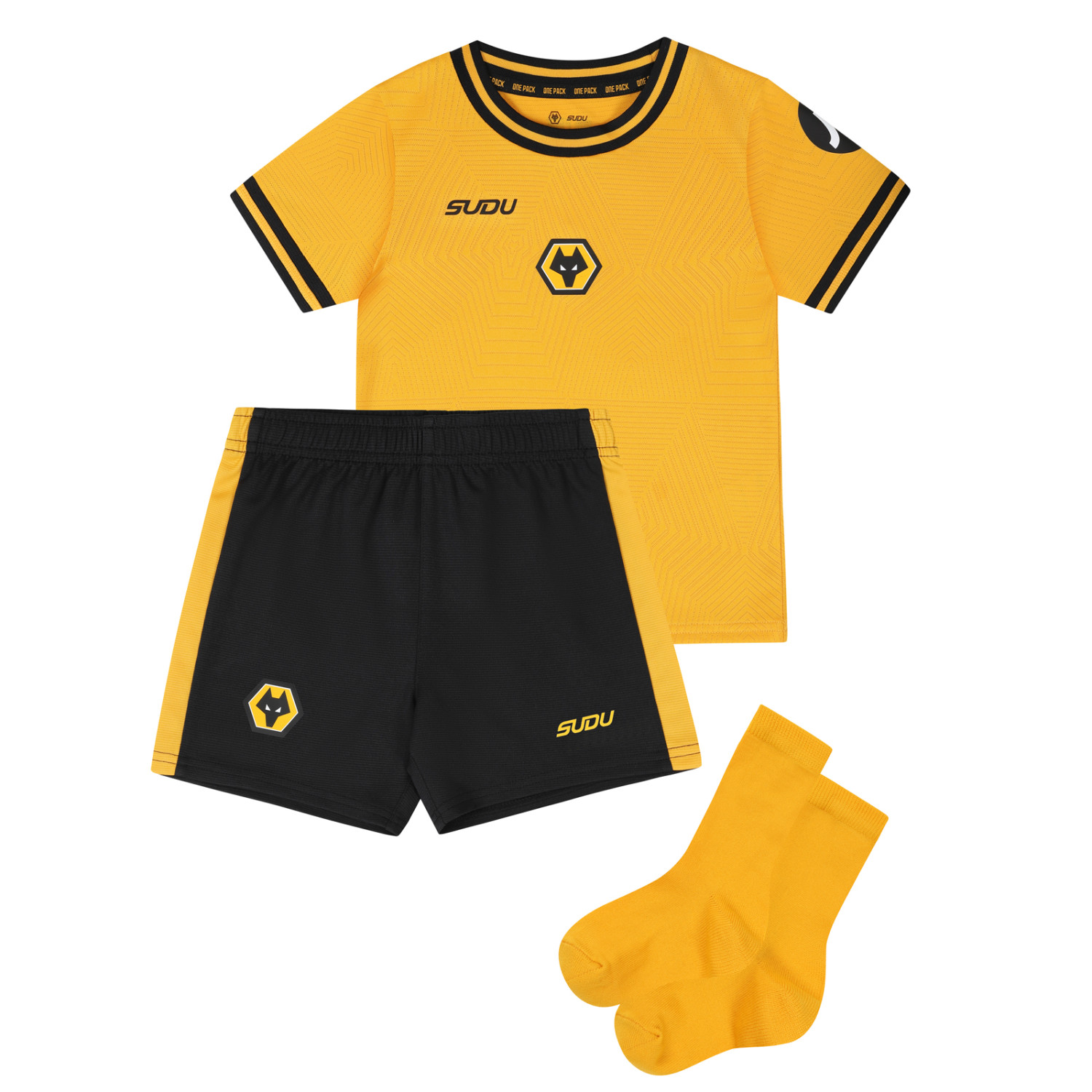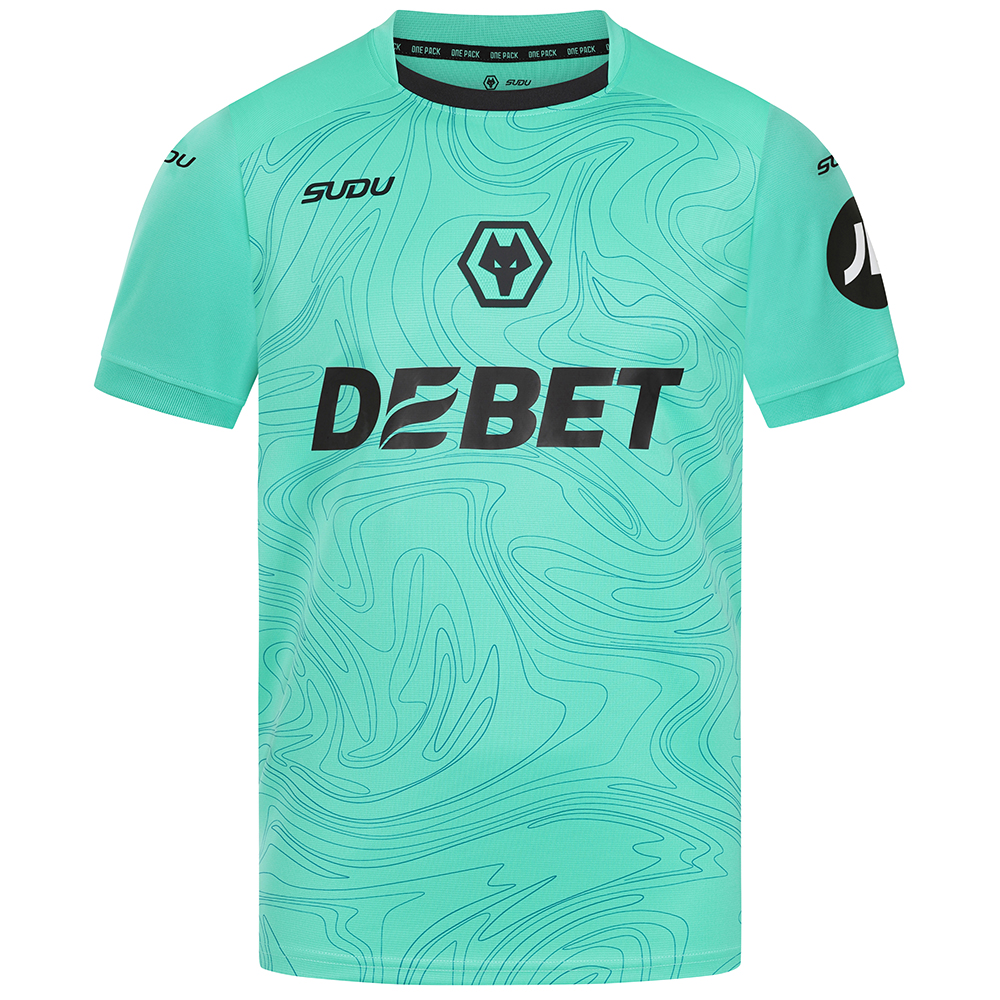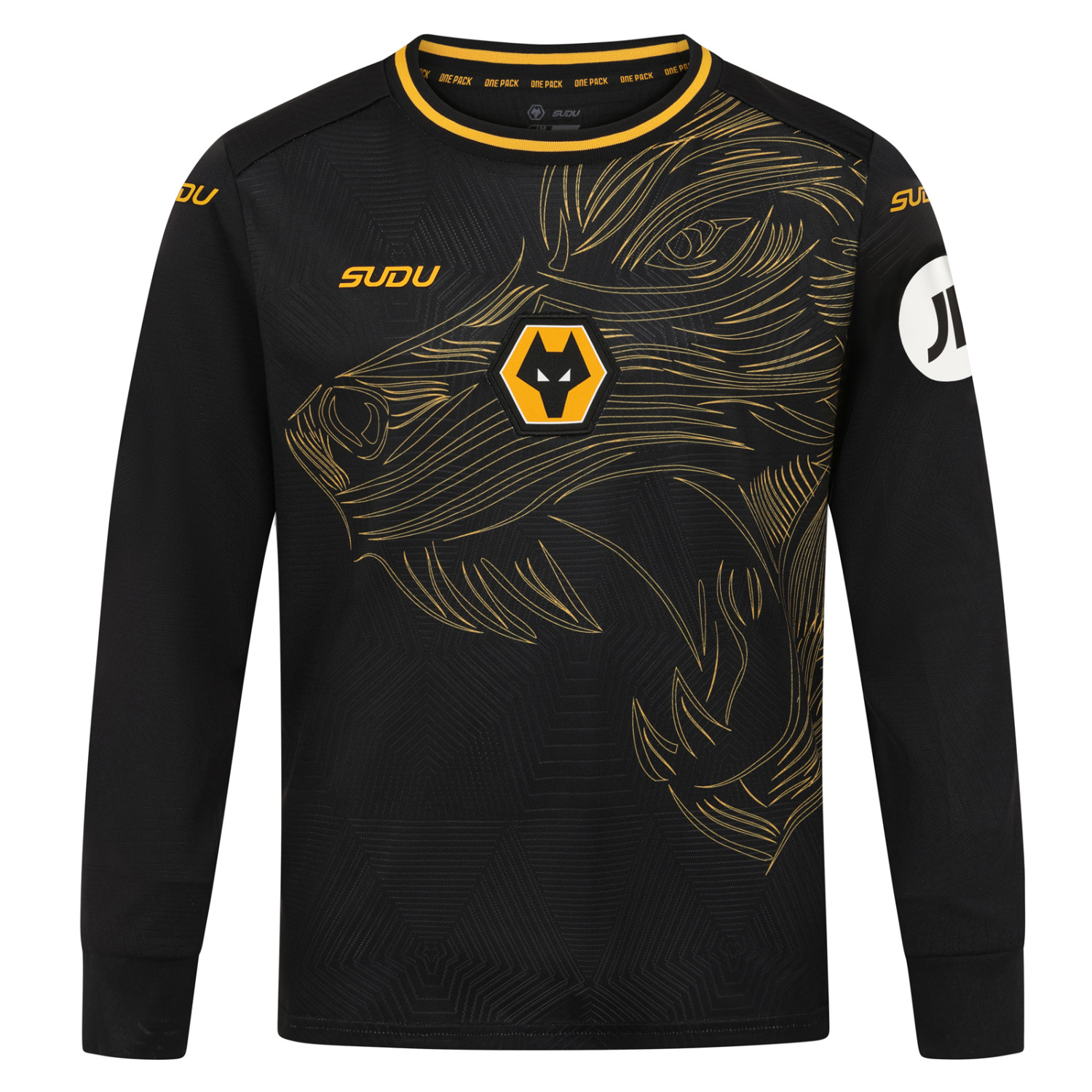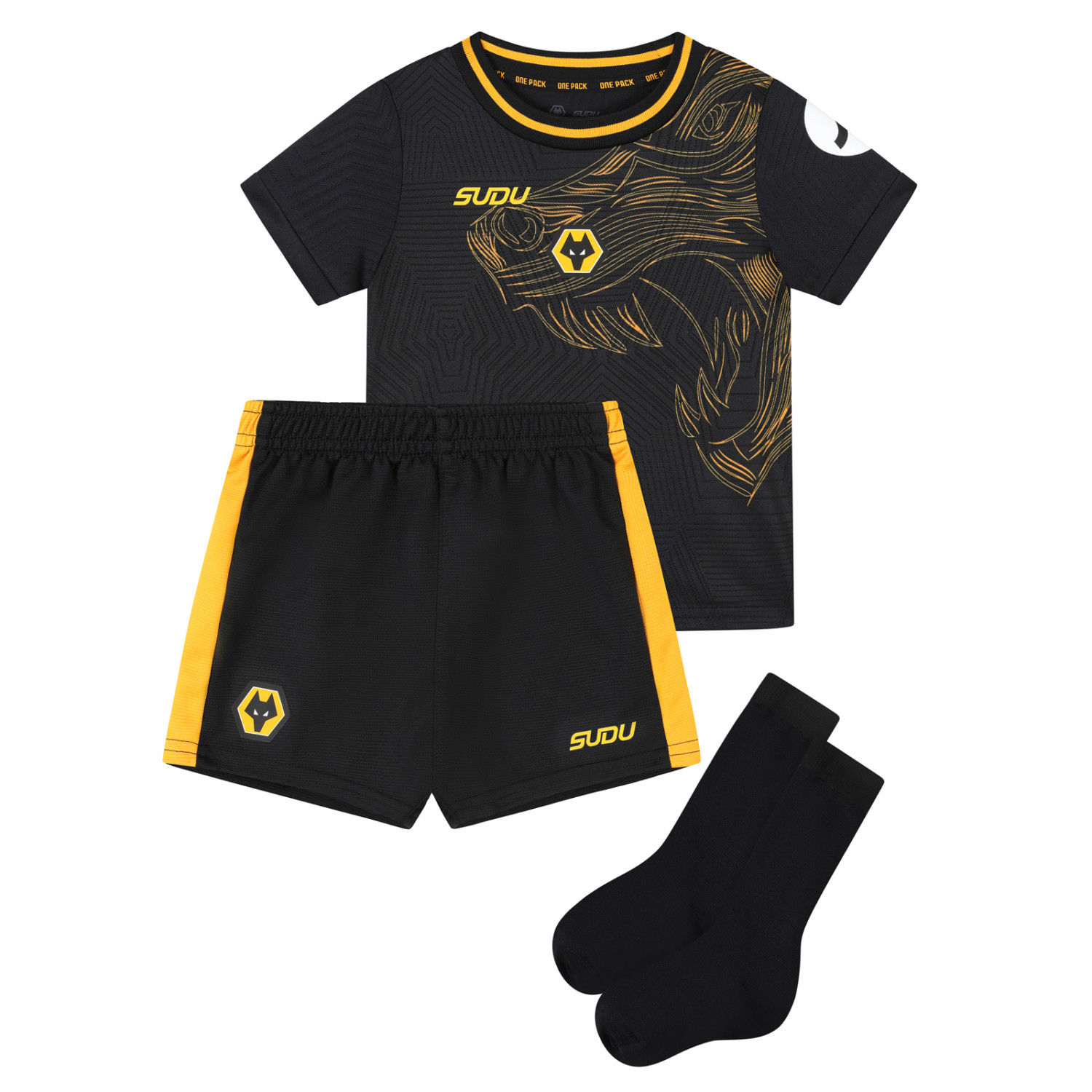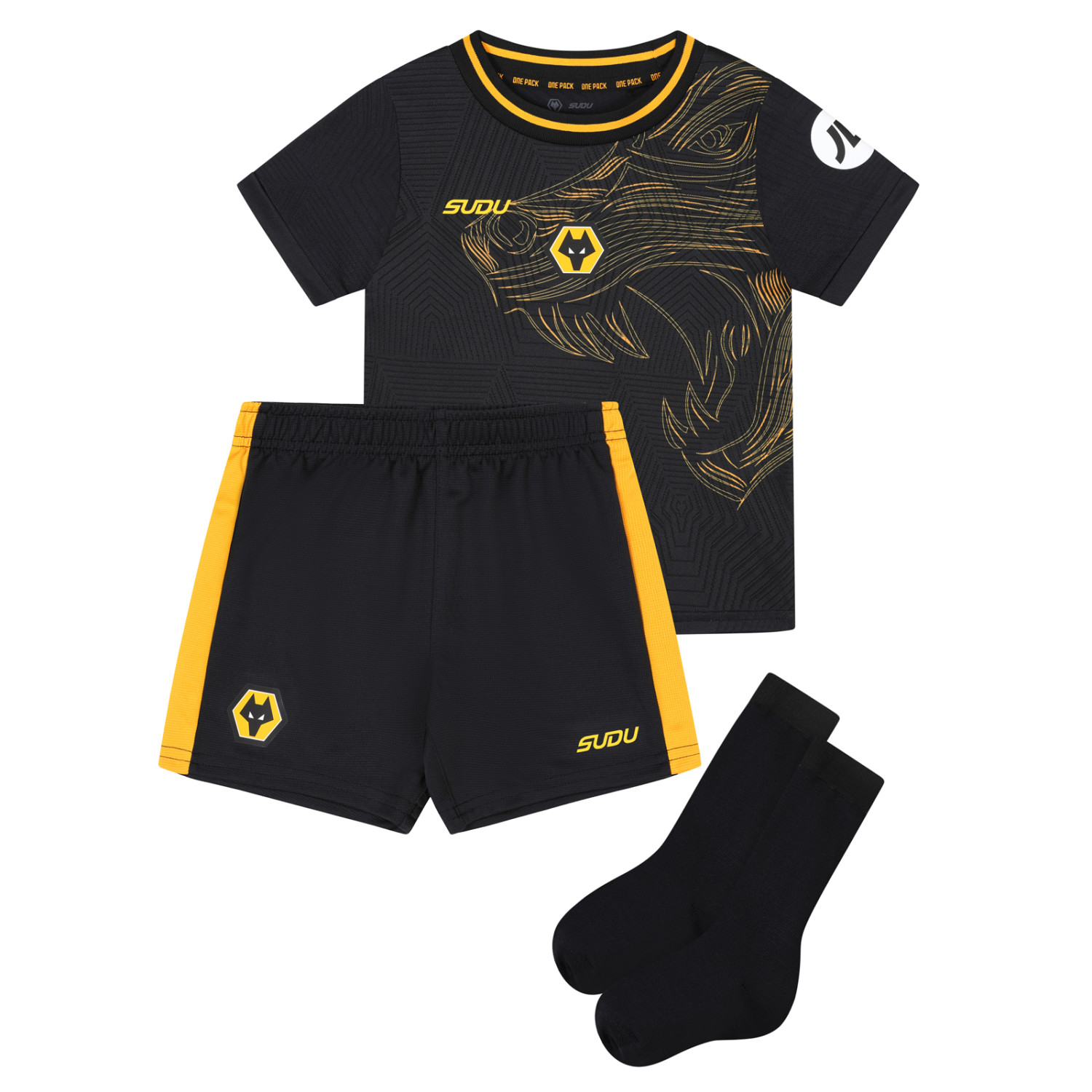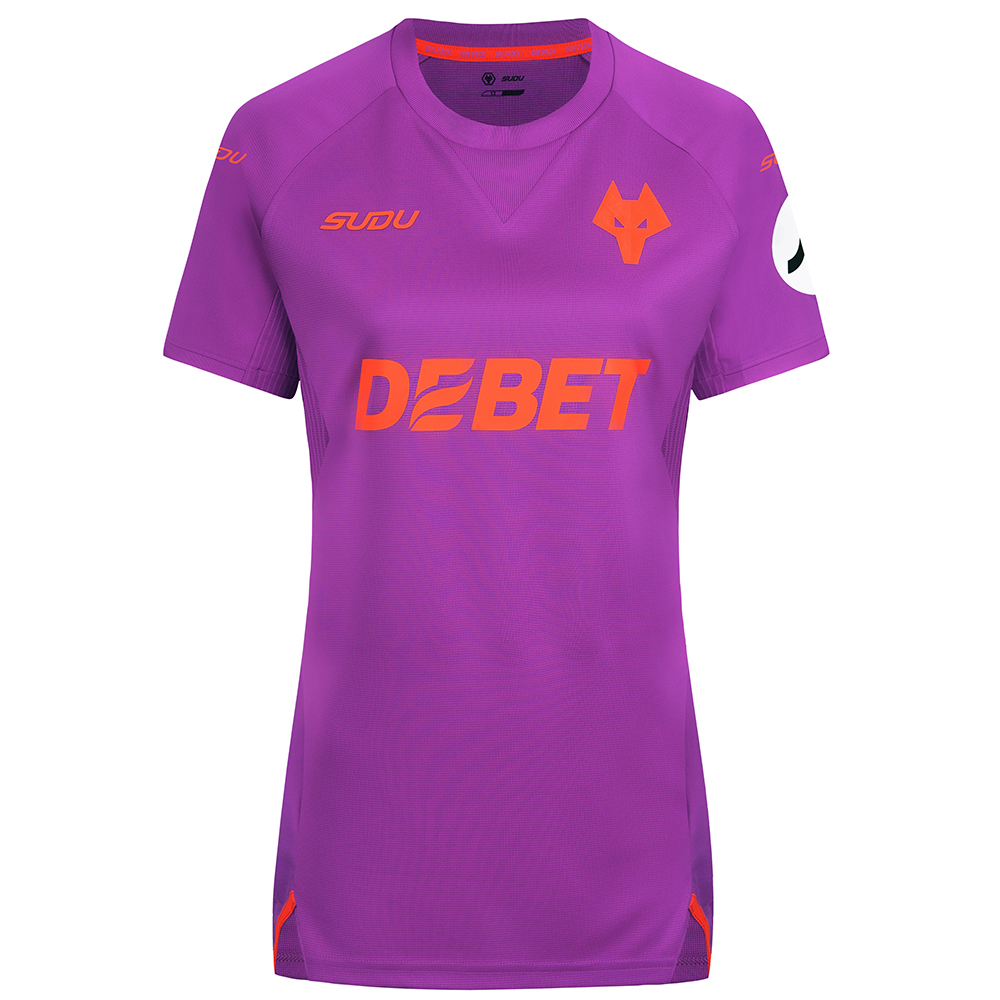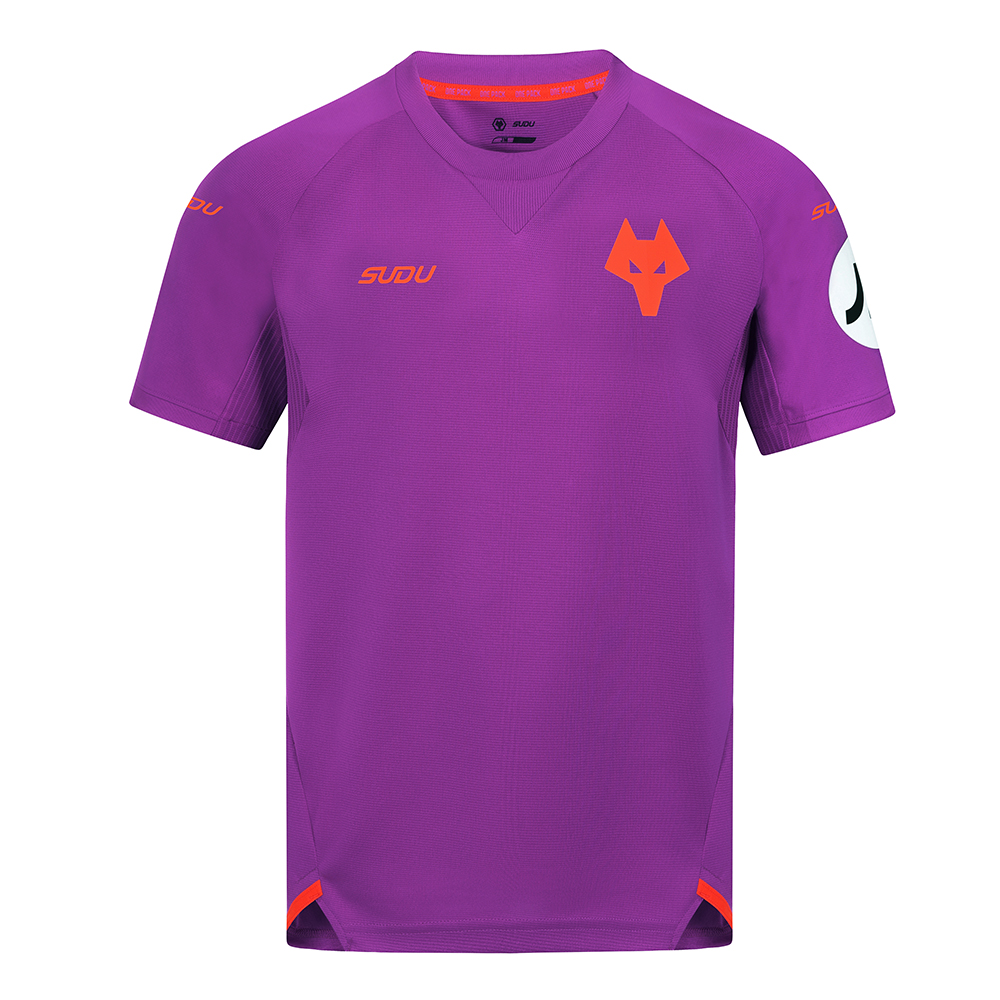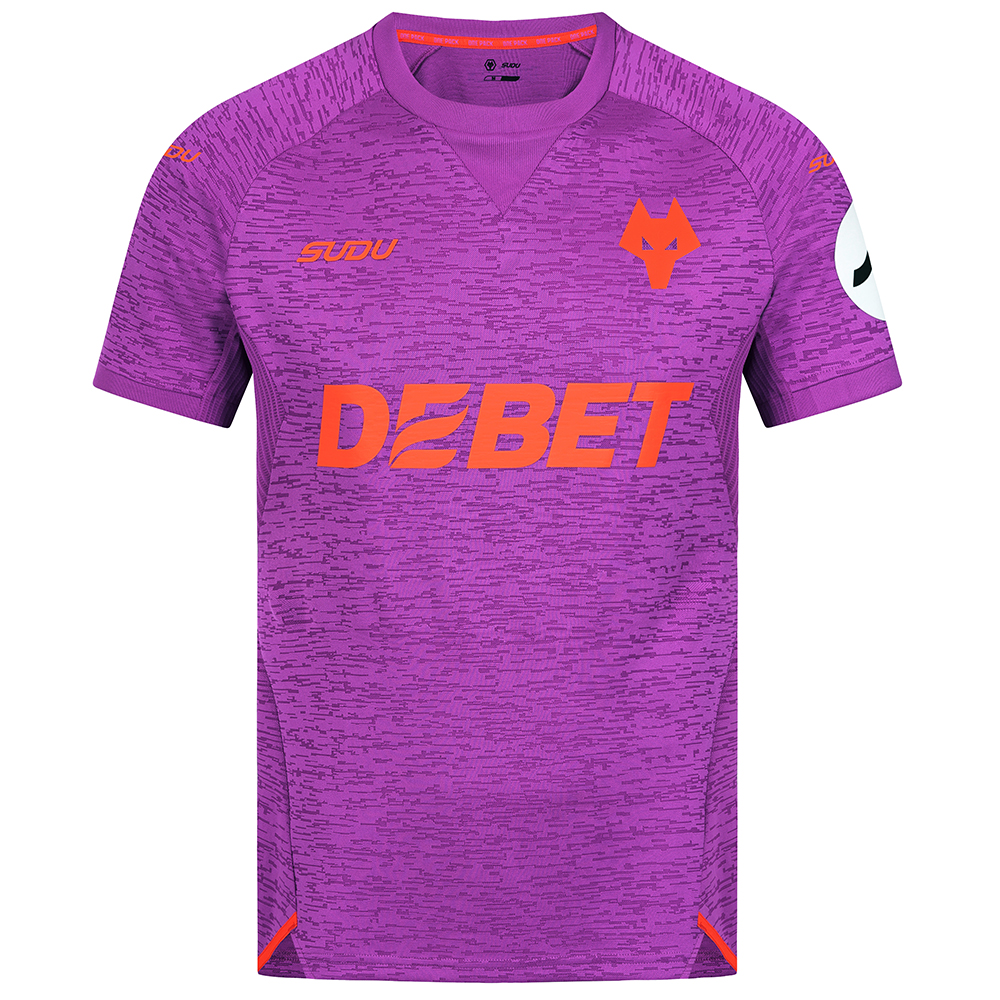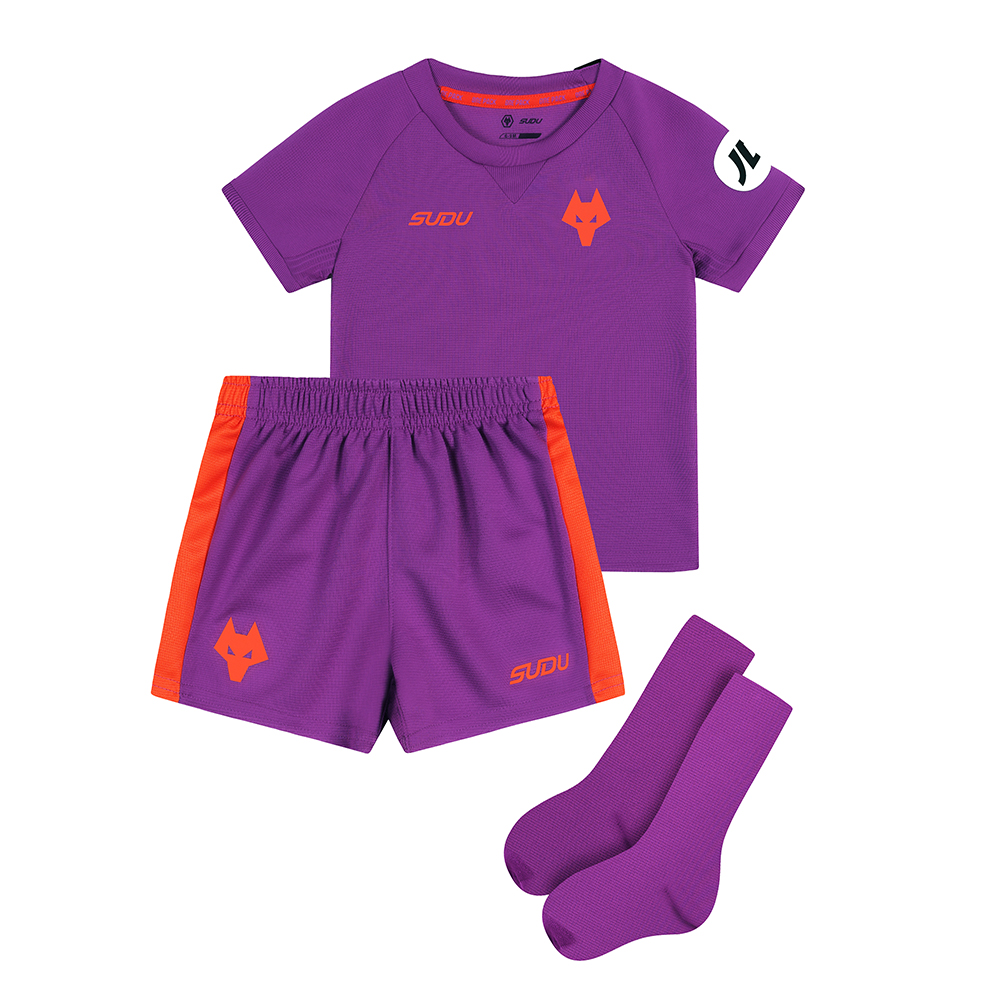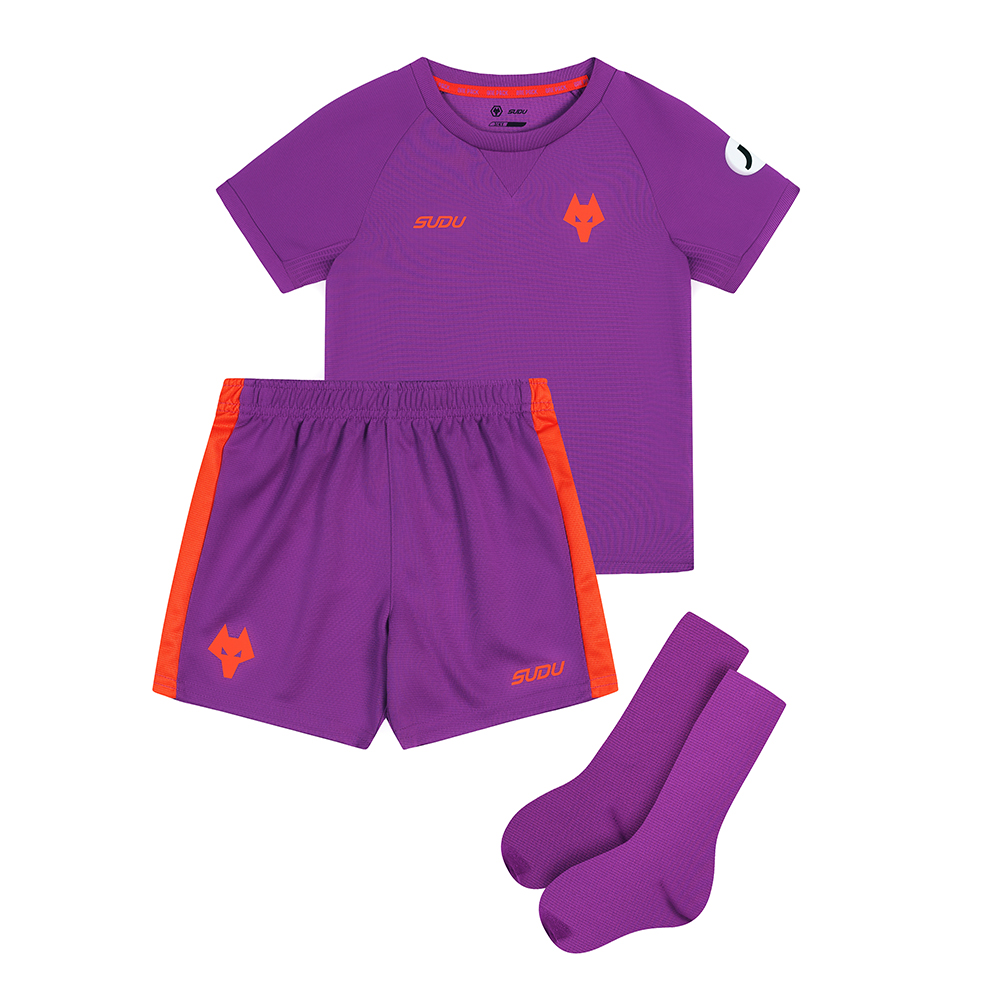Football is a universal language. One which transcends borders, ethnicities, ages, genders and backgrounds, bringing together people from all walks of life.
At Molineux, the heartbeat of Wolverhampton’s football culture pulses through every matchday, uniting fans from across the city.
But among the sea of gold and black, there’s a smaller, yet powerful narrative, and one that is growing louder – the story of the club’s Black female supporters.
Although Wolverhampton is one of the most diverse cities in the country, the faces in the stands at Molineux don’t always reflect this, with Black supporters still making up a small fraction of the overall fanbase.
For some, this has created a feeling of isolation, while for others, it has fostered a sense of determination to build a more inclusive space.
Among the Old Gold fanbase are three generations of Black women – with their ages spanning four decades – Kezeyah Perrin-Atkinson, Simone Stewart and Sophia Goldsmith, who each possess their own unique story of how they fell in love with Wolves, the role football plays in their lives and how they’ve navigated being Black female supporters in a largely White male-dominated crowd.
At 15, Kezeyah embodies the future of Wolves fandom. Born and raised in Wolverhampton, she represents the next generation of supporters who are helping shape what it means to be a part of the Wolves family.
“I first got into Wolves because of my grandad, he’s a really big football fan,” she said. “I remember going to his house and the football would be on the sports channels and I was just sitting there, like, ‘Oh, what is this?’
“Then eventually, I started loving it. Then I saw Wolves, and I was like, ‘I love this team.’ I chose to support my local team, first because it’s local, and also because it just feels right to support my local team. Knowing I could just go down the street and see the stadium.
“I just love everything about Wolves. It's just a part of me. I love the team, even the stuff they do outside of football and the community aspect – everything they do behind the scenes, it's not just about football and what you see on TV.
“The club like to get the community involved and they want everyone to have an opportunity to have a chance in football. It’s not just that we’re watching football, there's something going on behind the scenes, they're getting everyone involved and I just love everything about it.”
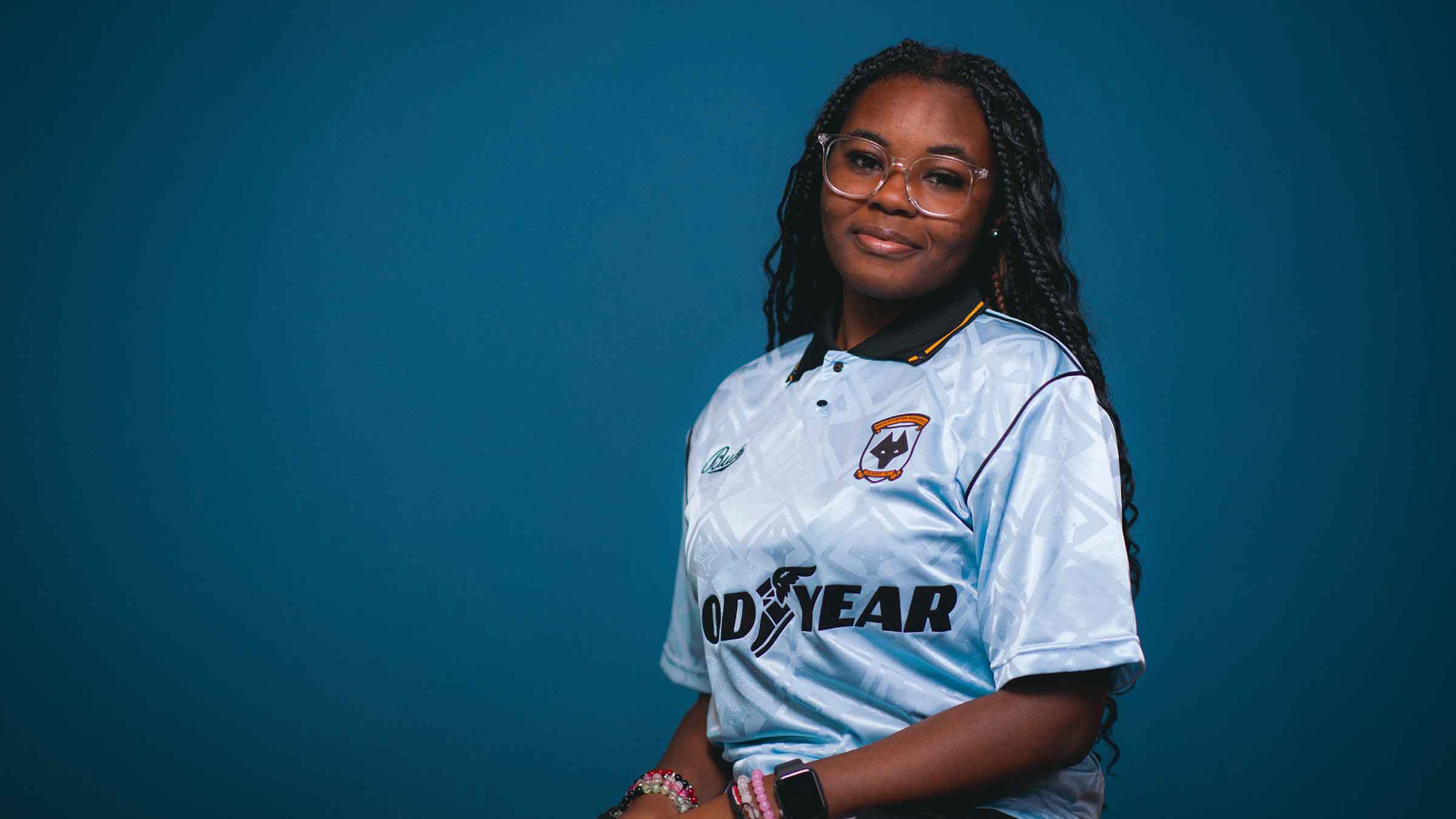
Attending Wolves matches for Kezeyah isn’t just about football; it’s an experience that connects her to her city and her community, admitting she buzzes off the energy which courses through the crowd on matchdays.
“When you’re walking up from under the subway, the atmosphere just hits you straight away. Everyone is chanting and singing – it's shouting, but it's not angry shouting, it's passionate and you can tell everyone's there for the love of the sport.
“They're shouting because they care. They're shouting because they want us to win, they want the team to do well, so they're showing they care. The atmosphere is just amazing, and it brings everyone’s hopes and spirits up, and as soon as the match starts, everyone's raring to go.”
As a young Black female football fan, Kezeyah is acutely aware of the challenges that come with being part of a minority in the stands.
However, with the introduction of a new Black supporters’ group – Golden Black – she’s optimistic about the growing diversity at Molineux and hopes that more young Black girls will feel inspired to attend matches and get involved in the sport.
“I think the group is going to be so important. It’s going to show young Black people, especially young Black females, that they can come to games and they will be welcomed.
“Football is a beautiful sport that everyone can be involved in and it's not just made for one type of person. Football brings everyone together. It's a way to be yourself, express yourself through something everyone loves together.
“It will be great to have greater Black representation in the fanbase, and to say, ‘You are seen, you are heard and you can come be safe, have fun and just have a love for the sport.’
“I feel like the group hasn't existed because no one's really thought that it needed to happen until now. Most people think, ‘It’s football, anyone will turn up.’ But sometimes you need that push. You need that support to say, ‘You can go.’ It's not something you can't do and it's not something you can't go and represent.”
𝙒𝙝𝙖𝙩 𝙒𝙤𝙡𝙫𝙚𝙨 𝙢𝙚𝙖𝙣𝙨 𝙩𝙤 𝙢𝙚.
— Wolves (@Wolves) October 22, 2024
Learning about our fans' stories and experiences for @bhmuk.
🐺🎬 pic.twitter.com/yttkgPRsQ7
Representation matters deeply to Kezeyah. Her favourite player, Nelson Semedo, serves as a role model, reminding her that barriers can be broken in a sport often dominated by a lack of diversity at many levels.
“He inspires me to want to do well, because I play in defence as well, so when I watch him play, it’s like that I could be you. It’s representation.
“I feel like I can play football, I can show up and show out, and he inspires me to want to do my best. Having a Black player like Nelson on my team has just shown me that I'm not being stopped because of the colour of my skin. I can go and play, no matter what.”
Simone’s journey to becoming a Wolves fan wasn’t linear, and at 34, she brings a different perspective to the table.
Influenced by her father, Simone grew up supporting Manchester United, however, as she grew older and worked at Molineux, she found herself drawn to Wolves – the team that represented her city.
“When my dad first came to the country, he supported Man United, and it was something that I followed. But in my teenage years, especially when I started working as a waitress at the club, Wolves were pretty much a second team to me.
“But I started to fully support Wolves and stopped supporting Man United a couple of years ago, because I'm so passionate about being from Wolverhampton, I’m passionate about the city, and I'm really passionate about the club, and what it means to me, so I thought Wolves should be the only club I support.”
Her first taste of live football came at a Wolves game, even before she officially switched her allegiances to the gold and black. She recalls attending a Wolves versus Manchester United FA Cup tie at Molineux in 2006 with friends, an experience that cemented her love for football.
“My best friend also supported Man United, so we went with a load of my friends, and that was one of the earliest memories of Wolves that I'd had.
“Even when I was supporting Man United as my ‘main team’, I still went to Wolves games at Molineux, and I would still try and get to a game of Wolves whenever I could. I ended up going to quite a lot of Man United/Wolves games, both home and away.”
The decision to switch loyalties wasn’t easy for Simone as she wrestled with the idea of abandoning her childhood team. “I even spoke to other people about it and asked them if it was ok – ‘Am I allowed to change club?’ But Wolves are my hometown team, so I don't see a problem with it.”
Simone’s journey from Manchester United fan to Wolves supporter is a testament to the strong sense of community and belonging that Molineux fosters.
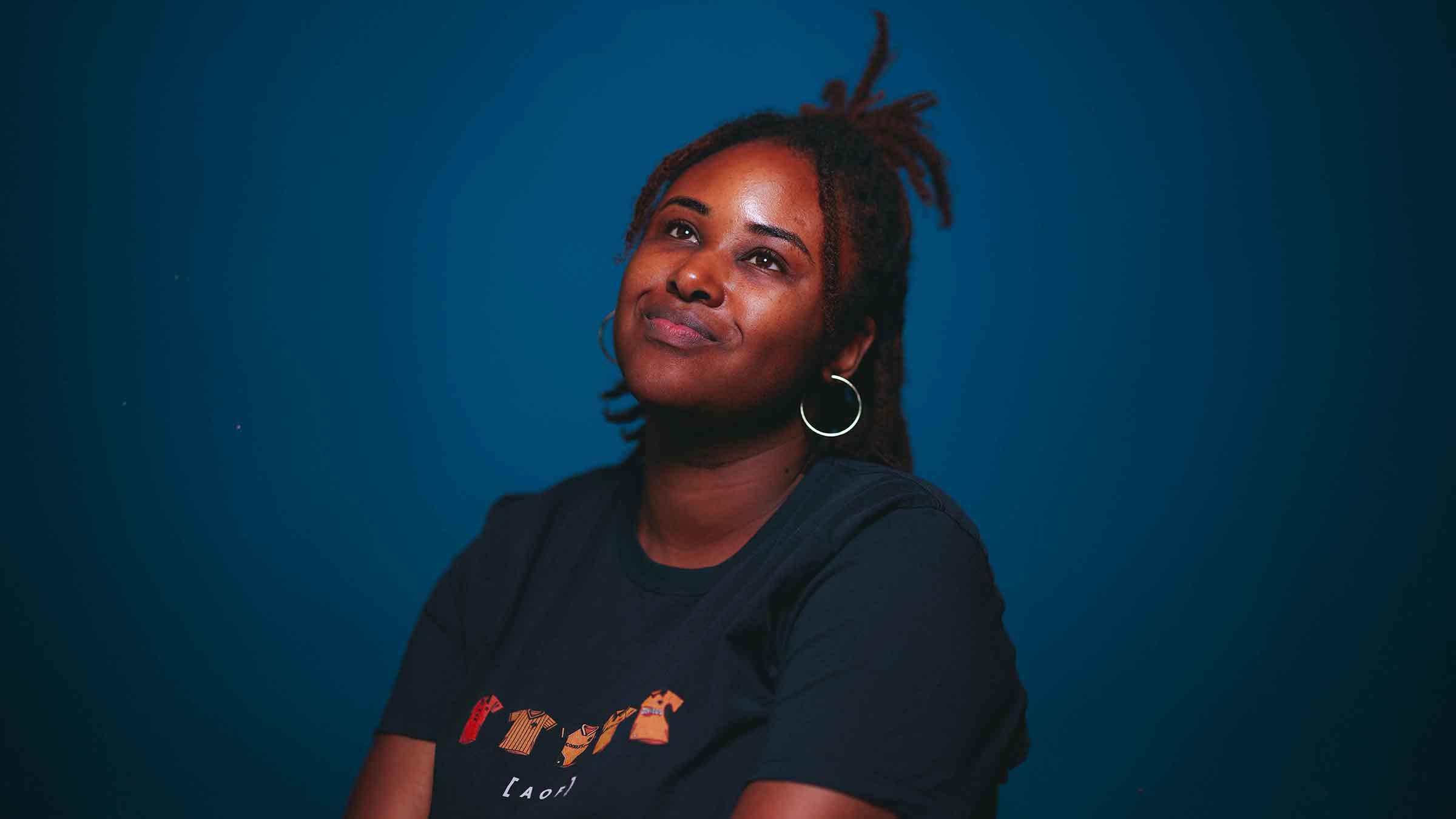
Her connection to the club runs deep, and she has fond memories of her time working at the stadium and the relationships she built with players and staff during the late 2000s, as the club were pushing for promotion out of the Championship under Mick McCarthy.
“I loved Matt Murray. I got on with him quite well and he was fun to be around, off the pitch, and I thought he really cared and was really passionate.
“Sylvan Ebanks Blake was great as well, and so was George Elokobi. From when I was working at the club, just watching these players, they were really, really good.
“But now, my favourites would probably be Mario Lemina, and also Craig Dawson. I know he's kind of a random one, but I quite like a defender, and in many games, he has saved us.”
Though Simone’s story differs from Kezeyah’s, her pride in supporting Wolves is undeniable. For her, being a Wolves fan is about representing the place she calls home and embracing the sense of belonging that comes with being part of the Wolves family.
“Being a Wolves fan means you're a part of the pack,” she said. “You are sometimes the underdog, but there's such a beautifulness about the club, about the team and about Molineux that I just love. Every time I go to stadium, I love it.
“The results might not always be the greatest, but I just love coming to Molineux. I loved it when I worked here, and there's just a fondness that I have with the club and that I have for the team. There's just something about when you see the boys walking out in the gold and black, it’s the feeling that these are our players.
“When we start singing ‘Hi Ho Wolverhampton’ I just get so emotional, and I love it. It's such a beautiful moment. Being a Wolves fan means a lot to me, and I'm very proud of where I'm from. I’m very proud of the city and I'm very proud of the club.”
Sophia has been a Wolves supporter longer than Kezeyah and Simone combined. Born in London, the 51-year-old moved to Wolverhampton in 1981 with her Old Gold journey beginning shortly afterwards.
During this time, Wolves were facing one of the most difficult periods in their history, but despite the struggles, which saw the club plummet from the top tier of English football to the bottom of the pile, she stuck by the team through thick and thin.
Her love for Wolves is deeply intertwined with her experience of growing up as a Black woman in Wolverhampton during the 1980s. She recalls facing racial abuse as a child but credits her passion for football with helping her stay connected to the city and its community.
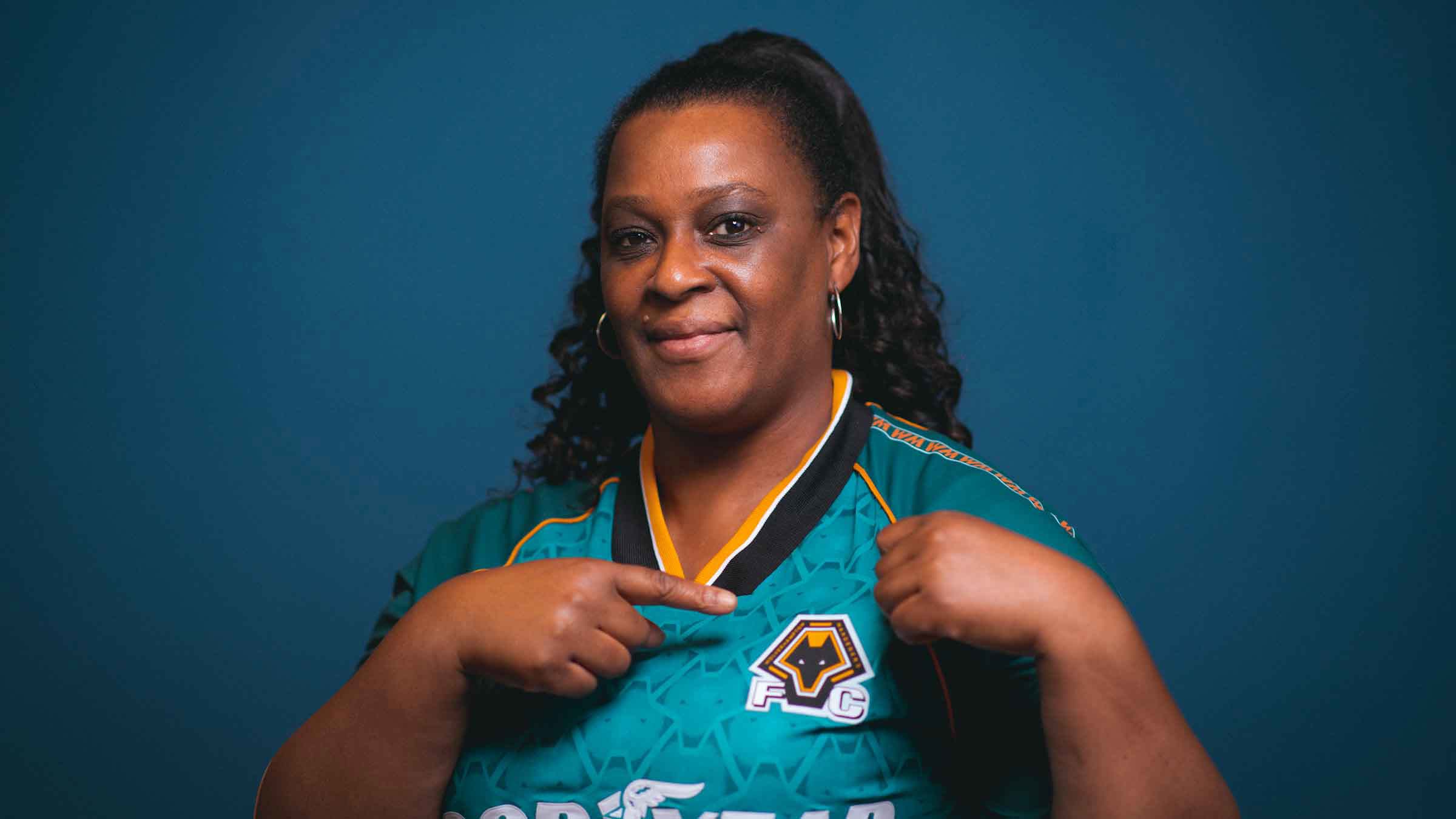
“Being a Black child in the ‘80s, names were called. It wasn't physical, but names were called – I’m not going to lie. For me, growing up in Wolverhampton, it had its good times, it had its bad times, but supporting Wolves always kept me going.
“I started following Wolves in the 1983/84 season when they were still in the old First Division. That was the time when things started to go downhill – quite literally. Every year we were going down and down and down until we reached the Fourth Division.
“It wasn't the best of times being a Wolves fan, especially when it seemed like everyone else wanted to be Man United or Liverpool supporters. It was a time when, if you were a Wolves fan, people used to take the mick, but I'm so glad I support Wolves.
“My first match was in 1986 against Chesterfield, and that was it for me. I was hooked. I’ve loved Wolves ever since, and I’ve been proud to support them. There have been tough times, but I’ve never wavered. I was proud to say I supported Wolves.”
Times are changing – mainly for the better – and unlike 15-year-old Kezeyah, who said she has never felt unwelcomed or afraid to attend Wolves matches, Sophia did not believe she would have the same experience of supporting her local club when she was a teenager.
“I was at the age where I really couldn't go to football matches. Someone like me, they were few and far between. But I always did follow the Wolves, always checked out the scores, watched highlights if there were any.
“As I got a bit older, I got bit more confident, and when friends asked me to come and watch a match, they’d say, ‘Honestly, you'd be with us. You'd be fine.’ So from about mid-teens, I did start going to the odd match and it was great fun.
“I started to go more often, and I had more confidence in going. I always saw the same faces, and it just felt like coming home. Every time I came to match, I always felt welcome and that hasn't changed right up until now.
“What Wolverhampton means to me is friendliness, diversity and how warm the people are. I’m so happy to say I am from Wolverhampton – despite what certain Chelsea players say! I'm very proud that I am from Wolverhampton, and no one can tell me different.”
Pride in her city and pride in her football club shines bright through Sophia, and despite the challenges she has faced in her life, there is always one place where she can call home – Molineux.
“We are a one team town. Although I wasn’t born here, I'm proud to say that I am from here. When I go on holiday, I take at least one Wolves top, and I'm happy to say that I support my local team, and I'm very proud to say that I do that.
“The more I look around, the more I see the diversity, not just with the players, but with the people around the stadium. When I walk to Molineux, I see all different faces, all different colours, and it is nice to see that.

“It is like coming home to a family, because I'm a season ticket holder and when I get to my seat, it's always the same faces, and if I miss a match for some reason, when I come back, I’m always asked where I’ve been and what I’ve been doing. That's how friendly people are to me.
“I know it's cliche, but I think Wolves fans are the best fans and the friendliest. I go home and away, and I've gone abroad, and if I see anyone, they all welcome me, making sure I'm ok, and I've always felt safe. It's great.”
Although the sense of separation that came with being one of the few Black faces in the crowd when she first started attending matches at Molineux in the 1980s has faded over the years, Sophia still believes there’s more progress to be made in making sure the stadium fully represents the diversity of the city.
“I'm hoping that having a Black supporters’ group will help the future generations, especially if they see Black women. There are more and more Black men that I see supporting Wolves and going to Molineux now – but there’s still not many Black women.
“Whether it be teenage girls or grown women like myself, if they saw someone like me or someone younger, then they can say, ‘If she can go, then why not me?’ We need more Black faces to come to Molineux.
“Wolverhampton is a diverse city, we've got so many languages, so many different faces that live in Wolverhampton, so seeing more Black faces coming to the game, it'll only benefit Wolves as a whole.”
What unites Kezeyah, Simone, and Sophia is their shared vision for what football can be: a space that is truly representative of Wolverhampton’s diverse population.
Each of them brings a unique perspective on how football has shaped their lives, but all three agree that more can be done to ensure that Black supporters, particularly female fans, feel part of the pack at Molineux.
The stories of these three women remind us of the importance of community, representation and the power of football to bring people together, regardless of ethnicity, gender, age or background.
And while they continue to champion their beloved football club, they are also helping to shape a new, more inclusive future for Wolves, one where every voice is heard and celebrated.









